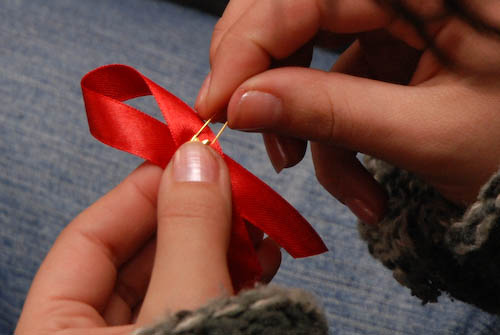In Indonesia, there’s still a huge stigma surrounding HIV/AIDS due to a lack of public education about the disease, to the point that people’s ignorant fears can lead to sufferers being persecuted — even children.
That is what reportedly happened to three orphans in the Samosir Regency of North Sumatra after residents of the regency found out that they were HIV-positive.
According to reports, the three orphans — one boy, age 11, and two girls, ages 7 and 10 — were recently enrolled in a public elementary school in the regency by the Batak Christian Protestant Church (HKBP) — the largest Protestant denomination in Indonesia.
However, just one day into their schooling, parents of other students at the school demanded that they be expelled over their medical condition.
Eventually, residents of the regency called for the banishment of the orphans, giving them until Oct. 25 to leave.
“The three [children] are not from [Samosir]. So the public was scared that they could transmit their disease to their children,” Berlina Sibagariang, Executive Secretary of the AIDS Committee at the HKBP, told the media on Sunday, as quoted by Tribun.
The HKBP, which is housing the children, say locals have no right to banish the children. The group also says it is going to continue to try to give the children their right to education in a public school, having already turned down the local government’s proposed solution of homeschooling because the church doesn’t want the children to be isolated from society.
Samosir Regent Rapidin Simbolon confirmed that locals want to banish the three children but says his administration is looking to offer a solution that would benefit both parties.
“We love all children, all schoolchildren. But now there is the opinion that parents don’t want their children to mingle with kids who are HIV-positive. For example if they are playing and one of them bleeds, the other kids don’t know [about the dangers]. So parents are worried, that’s understandable, right?” Rapidin said, as quoted by CNN Indonesia.
As such, he has offered the orphans to be enrolled in a special class in school, but still separated from the other children.
HKBP has not yet announced if they have accepted Rapidin’s latest proposal.
According to UN data in 2016, an estimated 3,200 Indonesian children were newly infected with HIV due to mother-to-child transmission. Since 2010, new HIV infections have decreased by 22% but AIDS-related deaths have increased by 68%.
Activists say that many in Indonesia are still uneducated about HIV/AIDS due to the taboo surrounding the subject, but awareness programs by the government and NGOs are slowly changing that. Cases of children born with HIV being denied their right to an education are relatively rare, with the Legal Aid Foundation recording two instances between 2016-2017.




